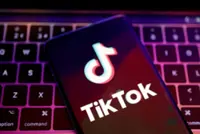
FILE PHOTO: Jessica Rosenworcel attends an oversight hearing held by the U.S. Senate Commerce, Science, and Transportation Committee to examine the Federal Communications Commission (FCC), in Washington, U.S. June 24, 2020. Jonathan Newton/Pool via REUTERS/File Photo
WASHINGTON (Reuters) - The Federal Communications Commission said on Tuesday it has approved a license for T-Mobile and Elon Musk's SpaceX Starlink unit to provide supplemental coverage from space in a bid to extend internet access to remote areas.
The license marks the first time the FCC has authorized a satellite operator collaborating with a wireless carrier to provide supplemental telecommunications coverage from space on some flexible-use spectrum bands allocated to terrestrial service. The partnership aims to extend the reach of wireless networks to remote areas and eliminate "dead zones."
T-Mobile and SpaceX announced a partnership in 2022 and in January the first set of satellites supporting the partnership was launched into low-Earth orbit with SpaceX’s Falcon 9 rocket.
"The FCC is actively promoting competition in the space economy by supporting more partnerships between terrestrial mobile carriers and satellite operators to deliver on a single network future that will put an end to mobile dead zones," said FCC Chair Jessica Rosenworcel.
The satellites have direct-to-cell technology to work with T-Mobile's network to expand coverage. T-Mobile said this year that over 500,000 square miles (1.3 million square km) of the United States are unreachable by towers because of the terrain, land-use restrictions and other factors.
In March, the FCC established a new regulatory framework for supplemental coverage from space to extend the reach of wireless networks to remote areas while preserving high service quality in 4G and 5G networks and preventing harmful interference.
While this is the first partnership that has received agency approval, other companies have pending applications for review before the FCC.
Last month, the FCC allowed SpaceX and T-Mobile to enable Starlink satellites with direct-to-cell capability to provide coverage for cellphones in areas of North Carolina hit hard by Hurricane Helene.
(Reporting by David Shepardson; Editing by Rod Nickel)









































